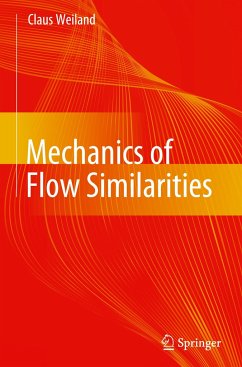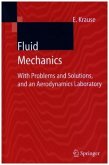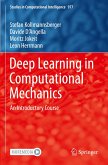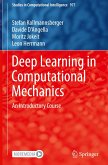The mechanics of similarity encompasses the analysis of dimensions, performed by various procedures, the gasdynamic similarity and the model technology. The analysis of dimensions delivers the dimensionless numbers by which specific physical challenges can be described with a reduced number of variables. Thereby the assessment of physical problems is facilitated. For fluid dynamics and all sorts of heat transfer the discipline of the mechanics of similarity was so important in the past, that the historical background is highlighted of all the persons who have contributed to the development of this discipline.
The goal of the classical gasdynamic similarity was to find rules, which enables the aerodynamic engineer to perform transformations from existing flow fields to others, which meet geometrical and other specific flow field parameters. Most of these rules and findings do no longer play a role today, because a lot of potent experimental and theoretical/numerical methods are now available. This problem is addressed in the book.
A recent investigation regarding the longitudinal aerodynamics of space vehicles has revealed, that there exist other astonishing similarities for hypersonic and supersonic flight Mach numbers. It seems, that obviously most of the longitudinal aerodynamics is independent from the geometrical configurations of the space vehicle considered, if a simple transformation is applied. A section of this book is devoted to these new findings.
The goal of the classical gasdynamic similarity was to find rules, which enables the aerodynamic engineer to perform transformations from existing flow fields to others, which meet geometrical and other specific flow field parameters. Most of these rules and findings do no longer play a role today, because a lot of potent experimental and theoretical/numerical methods are now available. This problem is addressed in the book.
A recent investigation regarding the longitudinal aerodynamics of space vehicles has revealed, that there exist other astonishing similarities for hypersonic and supersonic flight Mach numbers. It seems, that obviously most of the longitudinal aerodynamics is independent from the geometrical configurations of the space vehicle considered, if a simple transformation is applied. A section of this book is devoted to these new findings.








